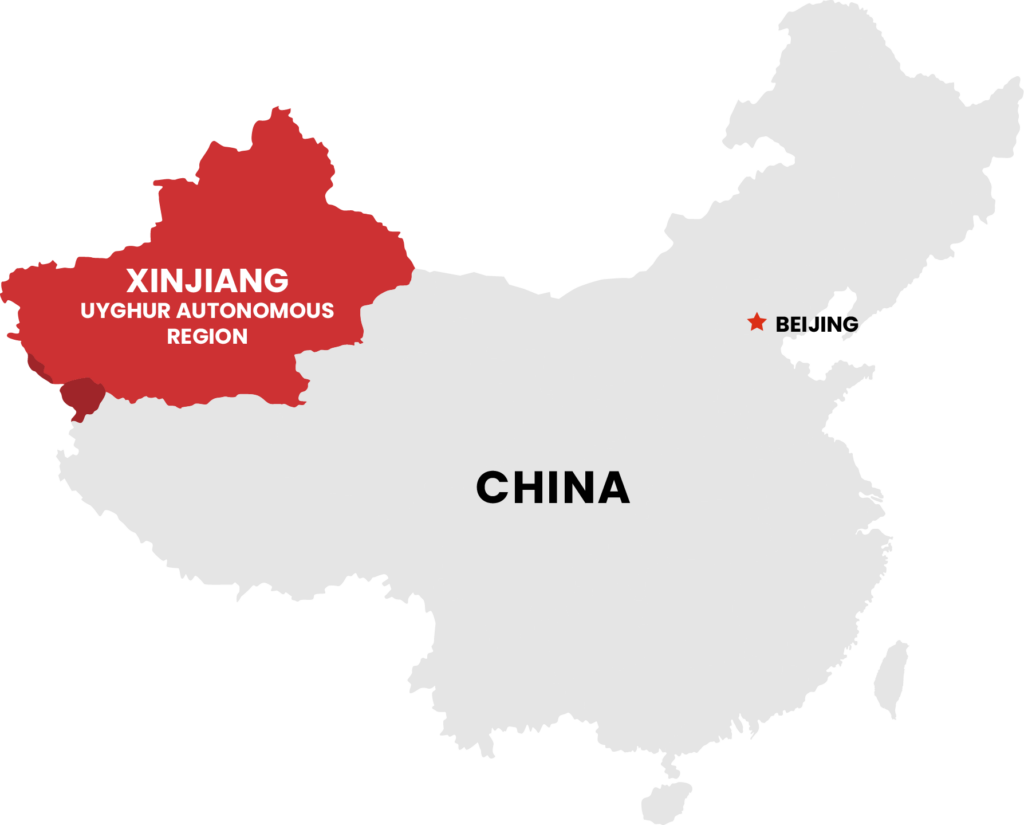Though the Uyghur Forced Labor Protection Act (UFLPA) was passed nearly two years ago to prevent goods made with forced labor from entering the US market, current UFLPA detentions are affecting several module manufacturers. This increase in detentions has the potential to once again disrupt the delicate supply-and-demand balance and disturb the US solar market in the near term.

The UFLPA is meant to address allegations of forced labor in the Xinjiang Uyghur Autonomous Region, where an estimated 50% of all polysilicon is manufactured in China. The US Department of Labor reports that over one hundred thousand Uyghurs, ethnic Kazakhs, and other Muslim minorities are being detained in re-education camps and subsequently entered into forced labor in Xinjiang and other parts of China.
What is the UFLPA?
The UFLPA is a US policy that assumes all products “mined, produced, or manufactured wholly or in part” in the Xinjiang region of China use forced labor and are therefore not allowed into the United States (through a legal principle called “rebuttal presumption”). The importing party must prove their goods were not made with forced labor by providing detailed supply chain maps in order for US Customs and Border Protection (CBP) to allow those goods entry to the US. The policy went into effect in June 2022.
Enforcement of the UFLPA since then has been inconsistent, but recent reports indicate that the number of seizures is once again on the rise, with more than modules in the crosshairs of the CBP.
What’s happening to solar imports?
ROTH Capital Partners said in an industry note that, “Multiple solar manufacturers have had significant numbers of their modules detained at port.” PV Magazine reported this summer that CBP had excluded Longi solar modules made with Tongwei polysilicon from entering the US market. (Tongwei does not have a presence in the Xinjiang province.) This news highlights the probability that solar modules entering the current US market may face unpredictable delays clearing customs and could be subject to rejection.
There has also been a shift in the types of materials being investigated. Previous UFLPA investigation has primarily been targeted at solar panels, tomatoes, and cotton, but may now also include lithium-ion batteries, tires, and raw materials for the automotive industry, such as aluminum and steel.
We expect the utility-scale market to suffer the most as a result of these detentions, but just as we saw in 2022, supply chain disruptions may eventually drive up prices for everyone. Buyers reacted last year by stockpiling modules, further reducing supply in the market. Predictably, sellers responded by increasing prices. Whether this latest round of crackdowns will lead to similar behaviors is anyone’s guess.
Why is this happening now?
The increase in detentions could be due in part to recent criticism that CBP has not enforced the Act broadly enough, allowing goods into the country that should be rejected. Republicans in Congress have been putting increased pressure on the Biden administration to ensure the UFLPA is more strictly enforced.
But enforcing the UFLPA isn’t an exact science, for the buyers or the enforcers. Detaining equipment is one thing, but providing reliable traceability is a challenge. Due-diligence firms are facing increased scrutiny in China, including potential raids and espionage charges from government officials.
Will detained modules eventually be released?
Since the UFLPA’s beginning, only a very small percentage of detained cargo has ultimately been rejected after CBP investigation. An estimated 2GW of solar modules (in 1,423 individual shipments) were delayed at the US border in 2022. A report from April 2023 showed 41 percent of the shipments were eventually released, with 58 percent still awaiting action at that time, but only 0.8 percent of detained shipments had been ultimately rejected.
Instead of sending products to the US that are likely to be rejected, exporters have rerouted large volumes of modules that are in violation of the UFLPA’s terms to Europe, where European PV manufacturers are clamoring for the EU to prevent the “looming catastrophe” of cheap, unethically made modules from China flooding the market.
How can I protect my solar business?
The best way to avoid UFLPA-related problems is to purchase products that aren’t subject to UFLPA. Our inventory is stocked and ready with plenty of models not made in China. Right now we have particularly good deals on Adani and First Solar, among other brands.
No matter which modules you choose, inventory restrictions on any modules can have trickle-down effects on the market as a whole. Don’t wait on Q4 planning – get inventory for your upcoming projects secured right away.
Our Kinect Solar Experts are available full time to meet your solar module procurement needs. Whether you need to secure modules or solar batteries for Q4 projects or redesign a current project to take advantage of available (or less expensive) products, trust us to help you make the right decision for your project.
Sources and further reading:
U.S. Customs solar exclusions may be “de facto ban on Chinese polysilicon” [PV Magazine]
US Checking EV Battery Imports Over China Forced Labour Fears [Asia Financial]
US customs detained 2GW of PV modules in 2022 under UFLPA [PV Tech]
“Looming catastrophe:” EU solar makers issue SOS as cheap China modules flood market [Renew Economy]
Due diligence firms in China’s Xinjiang region face rising scrutiny, US says [Supply Chain Dive]
Against Their Will: The Situation in Xinjiang [U.S. Department of Labor]
Uyghur Forced Labor Prevention Act [U.S. Customs and Border Protection]
This post is provided for general informational purposes only and does not constitute legal or financial advice. Kinect Solar makes no representation or warranty of any kind, express or implied, regarding the accuracy, adequacy, validity, reliability, availability, or completeness of this information. Kinect Solar is not liable or responsible for any damages or losses resulting from or related to your use of this information. This post includes links to websites not affiliated with or endorsed by Kinect Solar.